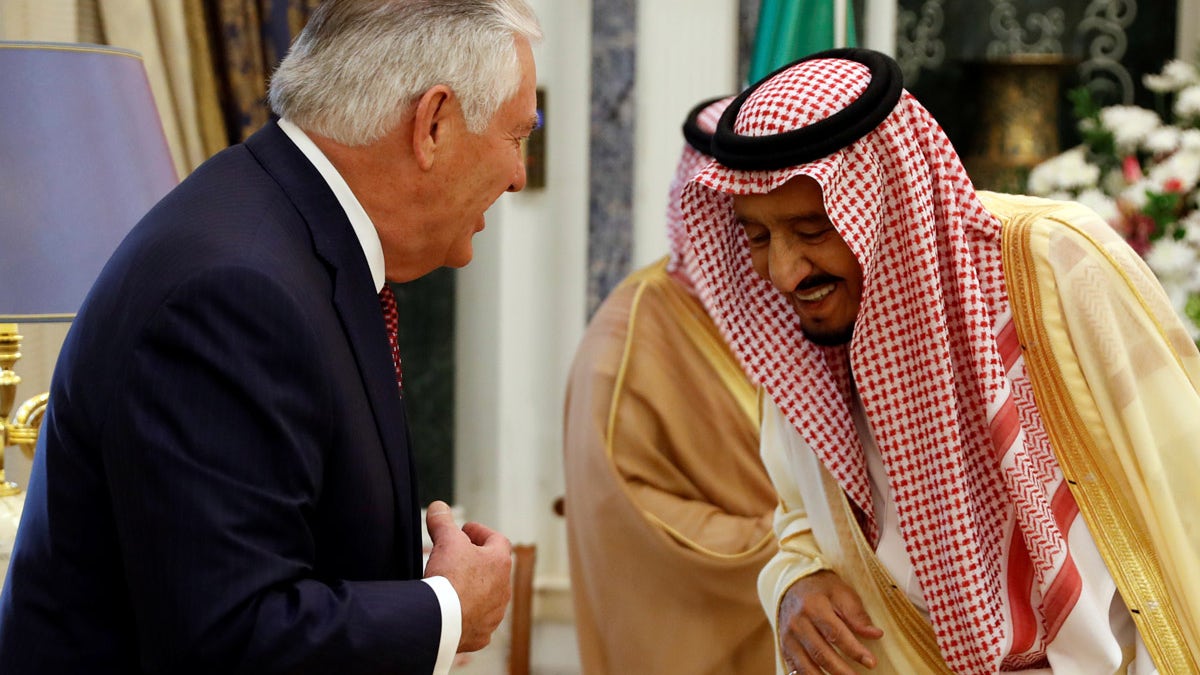
Saudi Crown Prince Mohammed bin Salman attends the Future Investment initiative conference in Riyadh, Saudi Arabia, Oct. 24, 2017. (Reuters/Hamad Mohammed)
Saudi Arabia will extract uranium domestically as a step towards “self-sufficiency” in producing atomic fuel, a senior government official said Monday.
Hashim bin Abdullah Yamani, head of the Saudi government agency tasked with the nuclear plans, told Reuters that the move makes sense from an economic point of view.
In a speech at an international nuclear power conference in Abu Dhabi, Yamani did not specify whether Saudi Arabia seeks to also enrich and reprocess uranium—steps that are much more sensitive because they can open up the possibility of military uses.
The world’s largest oil exporter said it wants to tap atomic power for peaceful purposes only in order to diversify its energy supply, Reuters reported.
SAUDI WOMEN TO BE ALLOWED IN SPORTS STADIUMS NEXT YEAR
“Regarding the production of uranium in the kingdom, this is a program which is our first step towards self-sufficiency in producing nuclear fuel,” Yamani told a conference organized by the International Atomic Energy Agency (IAEA). “We utilize the uranium ore that has been proven to be economically efficient.”
Atomic reactors need uranium enriched to around 5 percent purity but the same technology in this process can also be used to enrich the heavy metal to higher, weapons-grade levels.
This issue has been at the heart of Western and regional concerns about the nuclear work of Iran and led to the 2015 deal in which Iran agreed to freeze the program for 15 years in exchange for sanctions relief.

U.S. Secretary of State Rex Tillerson and Saudi King Salman smile before their meeting in Riyadh, Saudi Arabia, October 22, 2017. (REUTERS/Alex Brandon/Pool)
President Trump has called the agreement a bad deal and this month said he was decertifying it. He wants Congress to fix the deal’s “flaws.”
On Monday, IAEA chief Yukiya Amano said Iran was complying with the nuclear deal.
SWISS FORMALIZE INTERMEDIARY ROLE BETWEEN SAUDI ARABIA, IRAN
According to Reuters, Saudi Arabia would be the second country in the Gulf Arab region to tap uranium. The United Arab Emirates is scheduled to start-up its first, South Korean-built reactor in 2018.
Yamani also said that Saudi Arabia will soon pass laws for its nuclear program and will have set up all of the regulations for its nuclear regulator by the third quarter of 2018.
“The IAEA also has been requested to conduct an integrated review of our nuclear infrastructure during the second quarter of 2018,” he said, according to Reuters, which will allow the agency to assess efforts to prepare Saudi infrastructure “to introduce nuclear power for peaceful purposes.”
Saudi Arabia is considering building some 17.6 gigawatts of nuclear capacity by 2032, the equivalent of about 17 reactors.








































